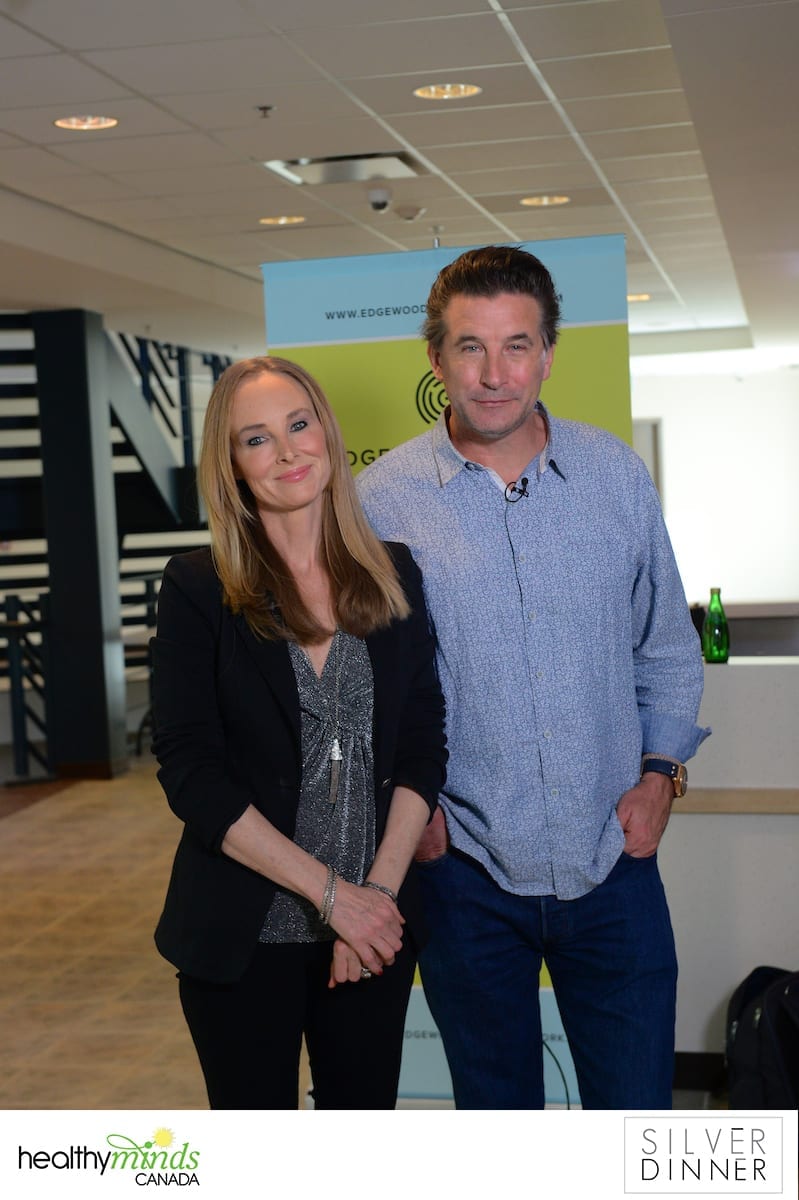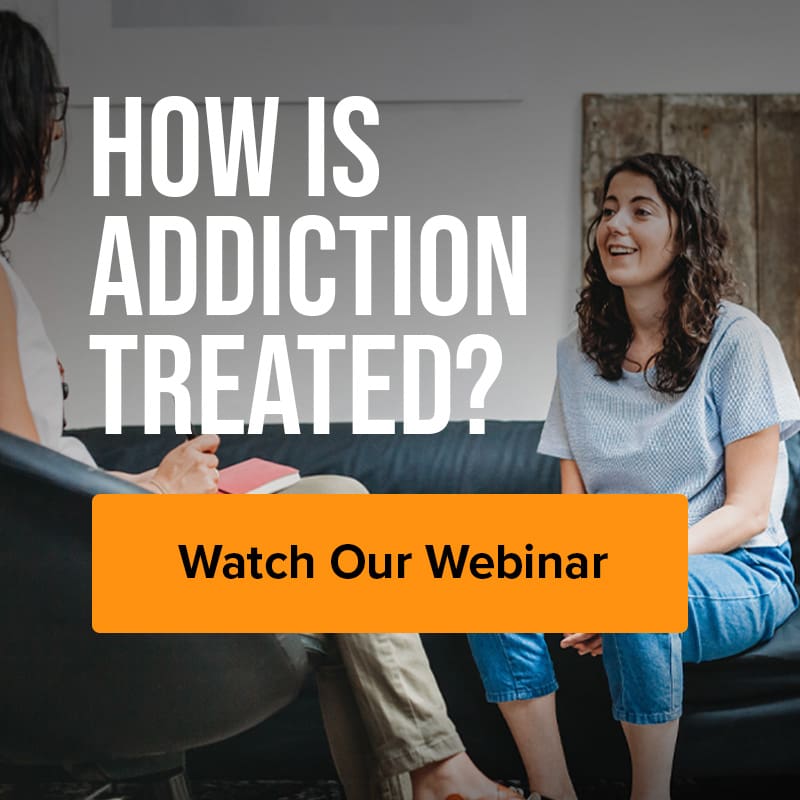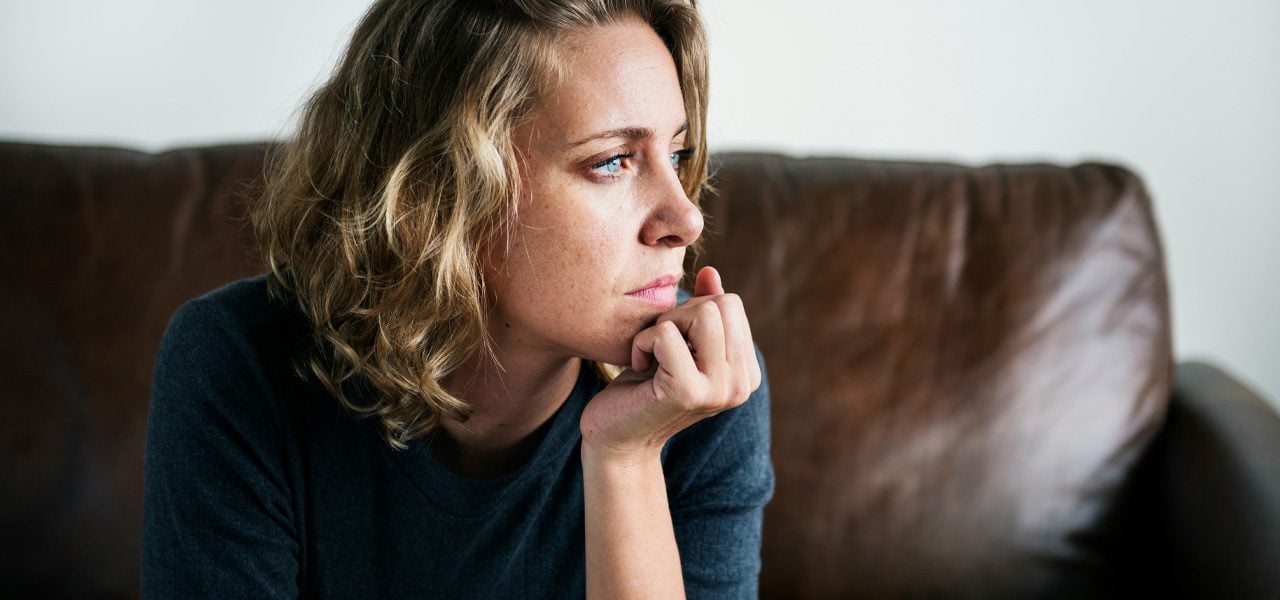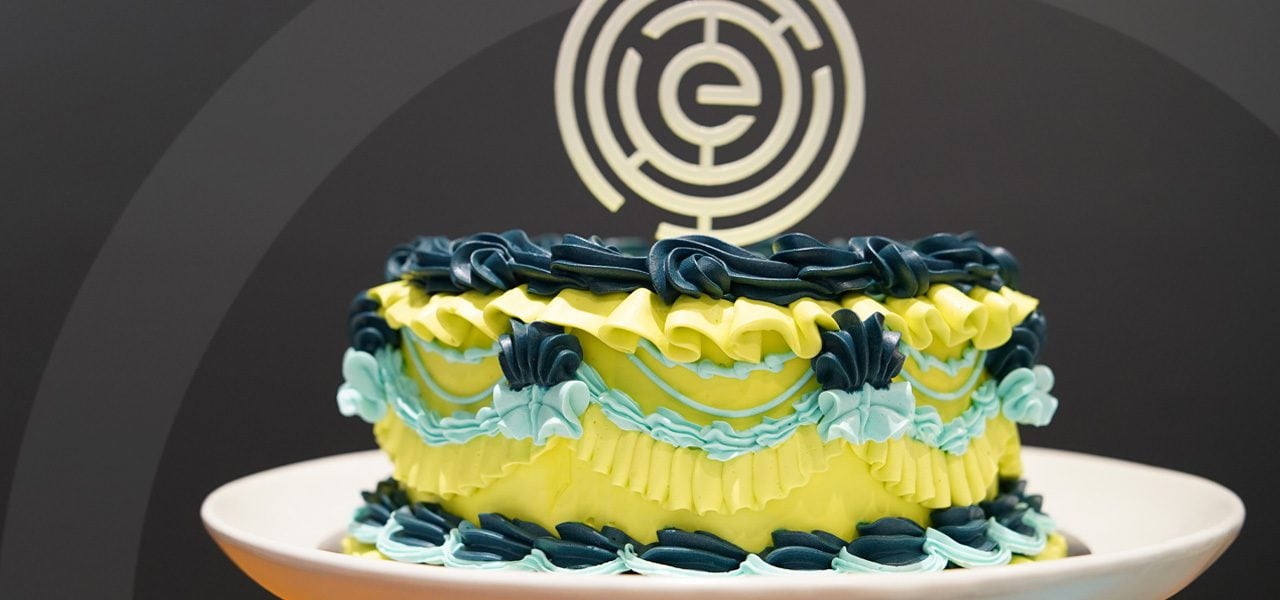By Jeff Vircoe
Billy Baldwin may not be the most famous of the Baldwins. He’s probably not the most controversial. But when it comes to the topic of addiction, he is certainly one of the most literate. Been there. Seen that.
Though not an addict himself, the 54-year-old American actor, producer and writer has had a front row seat to plenty of high-profile carnage. His famous male siblings, Alec, Stephen and Daniel, have, at different times, been public poster boys for the chaos that comes with the illness.
Billy is also married to a woman in long-term recovery, the actor, singer and model, Chynna Phillips. Together 25 years – a rarity in Hollywood for sure – Baldwin and Phillips have recently become more public about their experiences with recovery.
Last fall, they spoke at a Healthy Minds Canada gala in Toronto, sharing how addiction and recovery play out in their own lives. Sponsored in part by the EHN Canada, the dinner helped raise nearly $400,000 towards an assortment of research projects, workshops, conferences and various mental health education initiatives.
Baldwin agreed to talk at length about his wife’s and his own journey through the minefield of addiction and recovery, the full story of which appears in the current EHN Phoenix Magazine. Here is a portion of the interview conducted with Phoenix reporters.
What’s your connection to Canada?
My connection to Canada is far more through the film industry – like a million to one – than it is to any of my ancestors. My father’s side of the family came over, part of it on the Mayflower, another part of it in 1638 to Boston. My mother’s side of the family is German and French. They came through Nova Scotia and they also came through Quebec. Her maiden name is Martineau, but they’ve been in upstate New York for centuries. I don’t have a strong connection to her French Canadian side. I do, but it’s through upstate New York, so not really.
So you didn’t spend time in Quebec growing up?
We were too poor to travel and we were too poor to vacation. I was never on a plane in my childhood. Was never on a vacation in my childhood. We used to go up and visit my mother’s side of the family but that was all in upstate New York in the Syracuse area.
But, Canada? I’ve made movies coast to coast. I’ve made movies or I’ve worked with my wife and her band traveling across Canada. We’ve worked in Vancouver many times. Winnipeg many times. Toronto, I can’t even count the amount of times. Montreal several times. I made a film out in St. Andrews and St. Stephen in New Brunswick. I did a commercial in Quebec City. I must have made a dozen to fifteen films up there. I’ve done some charity events up at the Banff Hot Springs and Chateau Lake Louise. I’ve done some environmental fundraising stuff up there in the Canadian Rockies. So, I’ve been all over the country.
Have you spoken about addiction and mental illness before?
Not publicly a lot, no. Half my family is in A.A., so, yeah, everybody talks about their addiction and personal family issues in the anonymity of an A.A. meeting, but never on a public stage like that, no.
Do any of your family members give you flack when you talk publicly about things that maybe used to be left behind closed doors in the past?
Well, there are certain things that I don’t share. I share what I feel comfortable with. But there’s plenty of stuff that I haven’t shared.
In 1999, you made the movie Virus with Jamie Lee Curtis. She’s a well known spokesperson for recovery advocacy organizations. Do you see that kind of role for you and Chynna going forward? Can you use your profile for causes like this?
We could. We could. I mean, I don’t see why not. When I met my wife, she was three years sober. She was 22 and now she’s nearly 50. She’s been sober since she was 19. She grew up in a rock and roll family, so mental health issues and addiction. Her father was a heroin addict for decades and it killed him. If, somehow, I could put that together.
That format we did for you [EHN] guys would be a great platform for us to go around and talk about show business and family and the strength of marriage and addiction and mental health issues. Yeah, I liked doing it in the format we did. I didn’t want to have Chynna give a speech and then I give a speech. I wanted to sit up there in big fluffy chairs [with] an M.C. and do more of a talk show format, and then throw it out to the audience for questions. I’ve done many of those, but not with Chynna and not on that topic. But I’ve M.C.’d and done chats and all that sorts of stuff in the past.
Your description of one of Daniel’s bottoms was riveting. Did you ever get near that level, that environment that your brother was living, in your own partying years?
In terms of my own personal use, I’ve been around it. I’ve been around Hollywood people and I lived in New York for 25 years, so I’ve been around it with friends and family members, yeah. But, no, I’ve never had that kind of appetite for partying at all.
They say addiction is a family disease. So, when did addiction start affecting you? And now?
I didn’t really have to deal with it a lot. My parents didn’t do drugs and my parents didn’t really drink alcohol. We didn’t really have alcohol in our home, but that was more of a function of the fact that they couldn’t afford it.
I mean, we had it in the house. But my father was never that kind of guy. He was a high school teacher and a coach, so once or twice a year he would go out with some of the other teachers and some of the other coaches on pay day. They would cash their cheques and hit a local watering hole in my home town and my father would have a beer or two, but he was not … you know. Not to say that we were totally devoid of alcoholic behavior. But I really didn’t have a sophistication to identify what it was when I was 12 to 15 years old.
In my early adult life, I would say my earliest introduction was through my brother, Daniel, who was married to his high school sweetheart, had a child with her, got divorced, and in our early days in Hollywood, being around Hollywood people, and being around people [who] were abusing drugs and alcohol and then, my brother Daniel.
Daniel has married and divorced several times, and, more often than not, it has been drug addiction that has destroyed his relationships, and that is something that I was dealing with very early on. Even when I was in the latter years of undergraduate, and the early years in New York City after I’d finished college. I was dealing with bullshit related to his addiction. So, I’ve been running and growing and struggling with it myself – not my own addiction – but struggling with how to deal with [his].
The key being that, you know how, sometimes, when you think you’re helping someone, you’re not helping them. You’re enabling them. Trying to find that balance is always pretty tricky. It’s very challenging because you know you don’t know how to strike a healthy balance. A lot of times people will draw the line in the sand in different places.
Some people had been through this with friends and family for a lot longer than I had been at that point in my life, and they were very hard, very militant about it. ‘You gotta shut em off. You gotta shut em down. Fuck them. Don’t help them. Don’t give them an inch.’ It’s hard. When they are suffering and struggling, it’s hard when it’s a blood relative. It’s hard when they’re married and they have children. That’s something I’ve always struggled with. When children are involved. You want to try and find a way to help the kids without enabling the addict, you know?
Would you say co-dependency is one of your things?
On some level, everybody is. But, how much do you learn? How much do you evolve? How much do you grow? How much do you learn from past co-dependent mistakes? I think I’ve gotten pretty good about it.
You once had a house about 10 minutes away from Stepping Stones, which was Bill and Lois Wilson’s [the founders of AA and Al-Anon] place in Bedford Hills, New York. What are your thoughts on the 12 Step movement?
I think Bill Wilson should posthumously be awarded a Nobel Prize. Tell me where any one individual, unless you discovered penicillin, who else in the history of humanity has saved more lives than that guy? It doesn’t work for everybody. That’s okay. But the 12 Steps, across the board with narcotics, alcohol, with eating disorders – I can’t even quantify – millions of lives this guy has saved at this point.
What is the answer to the addiction crisis facing our two nations, in your mind?
It ain’t fucking Donald Trump, I’ll tell you that. But, I don’t know. I don’t know. This whole heroin thing, the way police departments are dealing with it now. I know a lot of lives are being saved because the cops are now carrying this Narcan [Naloxone]. That’s helping to save a lot of lives. It’s a Band-Aid [solution], but I like that it’s becoming more standard operating procedure. There [are] a lot of police departments that were fighting that, because I guess they didn’t want to be in that business. But they’ve saved quite a few lives, so I’m all for [it].
They say education is the key to this fight. So, what does the average North American need to know about addiction?
I think it’s one part education, one part economy and jobs, and it’s 10 parts God, if you know what I mean. Even then, you’re going to have [a lot] of people slipping through the cracks. But, I’ve never seen the epidemic as bad as it is now.
Even when heroin was chic, back when I was a teenager in the Seventies. The stuff that they have out there now with pot and with heroin, what they’ve done to it, I don’t know what they hell they put into it but, literally, the pot today – you take one or two hits of it and it’s like being on an acid trip in the Seventies.
I don’t do it – but that’s what I hear. It’s incredibly powerful and incredibly addictive. Between heroin and the benzo problem and the painkiller (opioids) problem, you could do heroin one time and no looking back. You’re hooked. It’s scary.
What do [workers] in the field need to know about the importance of what they are doing for a living?
I’ve never been an addict, so maybe it would be better for my brother, Daniel, to answer. He’s a professional in the field that you are in now. He’s still making movies, but he’s professionally doing interventions and putting people into recovery. He’s been doing that professionally for the last 10 or 15 years, particularly in the last five years.
It’s an epidemic. It’s worse than ever before. A lot of the services are being cut. A lot of the funds are being cut. And it’s coming at a time when you guys are needed now, more than ever. It’s stunning to me when you hear people like Trump talking about cutting services for the addicted. Cutting services for mental health. Cutting services for the National Endowment for the Arts, but then giving the Defense Department a $56 billion increase.
What does the term dry drunk mean to you? Have you ever seen it in action, and what does it look like?
Oh, of course. Of course. Dry drunks are frustrating to me. But, at least they have an excuse. The excuse is they are not in the program and they are not working the steps. What is more frustrating for me is somebody who is a raging alcoholic but they don’t do drugs, they don’t do alcohol, they don’t use at all.
They still go to meetings every week. Sometimes only once a week. Sometimes twice a week. They’re 25-30 years sober. They’re going to meetings, but they’re not really working the steps and they are letting or allowing their alcoholism to manifest itself in various ways in their life. It’s almost at an intolerable level and they are making people’s lives absolutely fucking miserable, and they don’t see it. They’re not doing coke. They’re not drinking alcohol. They’re not getting shitfaced. They’re still going to meetings. They go out with their buddies for a cappuccino after the meeting. They check that box. But they’re not really working the steps.
If they were working the steps then they would not be, in terms of OCD, in terms of control, in terms of rage and anger. A lot of times, the disease, when you’re not drinking and not working the steps the right way, you know, there’s transference, [there are] substitutions. A lot of people put it into exercise or sex. I’ve seen a lot of people are still going to the meetings and are raging alcoholics and it’s raging through their personality.
It’s not like I want them to go out and have a drink. But I wish they could see … they don’t see it. So dry drunk – that can be very dangerous. And, in most cases, that can be very unhealthy for somebody to not be using but to not be sober and not be working the steps. That can be upsetting and frustrating, unhealthy and dangerous.
Are you talking friends and family here?
Both. I have extended family and friends sure. And [in] all the experiences of my life, I’ve seen it many times. It’s very rare that I see somebody [who] is truly, truly sober. I see people [who] don’t use. People [who] go to meetings. And people [who], beyond going to meetings, really honestly attempt to work the steps. But, it’s such a challenge to allow that to transcend all aspects of your life.
I’ve rarely seen somebody [who] is sober who [has] allowed it to access and infiltrate and transcend every aspect of their life. Usually, you see the “ism” finding its way through some tributary; it finds a way to work itself into some aspect of their personality. Whether it’s eating, exercise, sex … I don’t know if there’s any such thing as the perfect 12 Stepper.
Your brother, Stephen, actually runs ministries. Your wife is a Christian. So where are you at with God?
I talk about that with my wife. I don’t talk about that in interviews.
Thank you for your time Billy.
We Can Help You
If you would like to learn more about the treatment programs provided by EHN Canada, enroll yourself in one of our programs, or refer someone else, please call us at 1-866-963-6343 . Our phone lines are open 24/7—so you can call us anytime.




